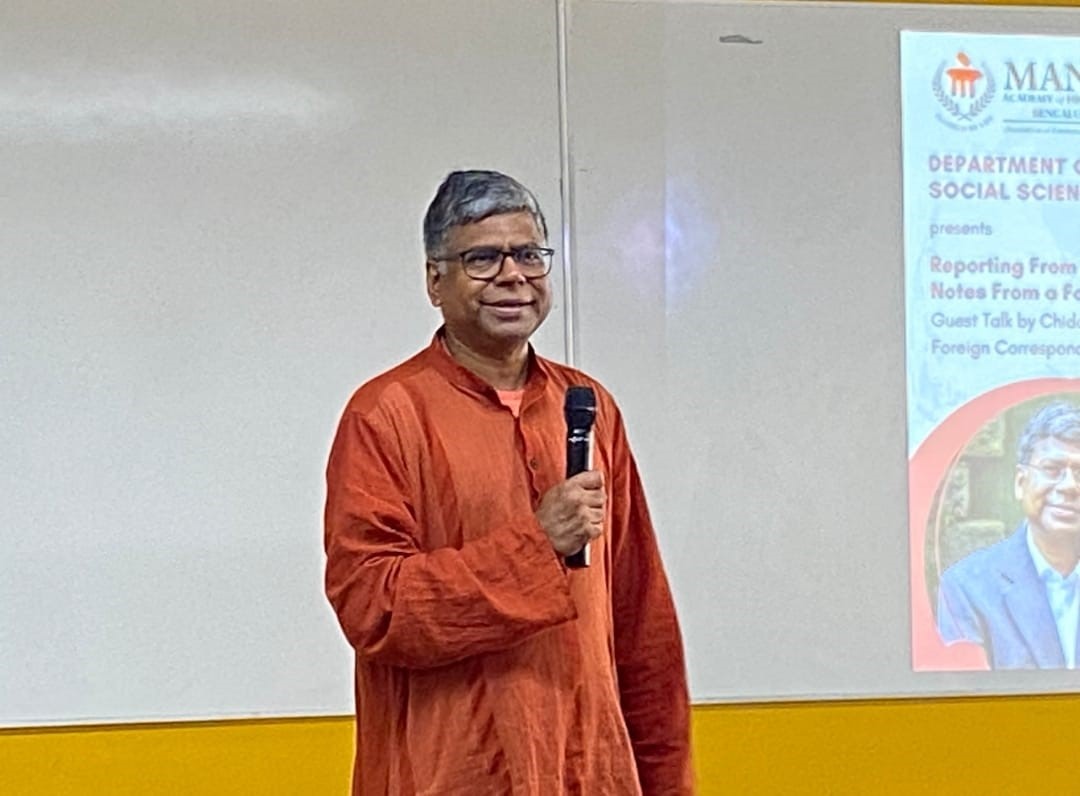Start Date: August 07, 2023
End Date: August 07, 2023
An opinion columnist, blogger, author and a full time Dad, Chidanand Rajghatta was invited on Monday to give insights to the students of DLHS on the life of a foreign correspondent and how the media landscape has transformed.
He shared with the students his story of how he intended to serve as a foreign reporter for only three years but ended up staying in the field for thirty years, stating “That’s how life plans out”.
He mentioned that several Indian newspapers, which previously employed foreign reporters but are eliminating those positions presently, stating “the world is more compact and accessible”.
In addition to this, he shared with the audience his perspectives on the early days of the internet, describing how, during his time spent in the United States, he was able to adjust to life there more quickly than he had anticipated thanks to the effectiveness of the internet. He also shared the difficulties of a foreign correspondent, saying “half of my life was here in India and half of it was in the United States”. He said that he could not spend quality time with his family as he was away for work most of the time.
He said that he wanted to return, but owing to some or other events that transpired, he stayed more than he expected. He shared one of his experiences during the Kandahar hijack, in which he was in ivory coast for a vacation when unexpectedly there was a coup in ivory coast. He said that he stayed longer than he expected because of these occurrences., to which he added, “life of a foreign correspondent can be so crazy”.
He described an experience in which he was in Delhi for the publication of his own book. After the launch, Chidananda was asked to produce the edition of the newspaper for the following day, even though he was suffering from jet lag and exhaustion., to which he said “It can be a hectic job to be a foreign correspondent sometimes “
Later, he discussed the fundamental aspects of journalism, and he argued that print journalism is currently on the verge of extinction due to the easily available nature of the internet. Over-the-top (Ott), as he referred to it, could force television to lose its dominant position in the market, according to what he said.
In his final remarks, he informed the audience that we are currently undergoing a screen epidemic, and that most individuals are permanently wired in. He stated that it has both beneficial and negative aspects, including the fact that it is easily accessible, but that at the same time, the internet has shortened our ability to focus.




